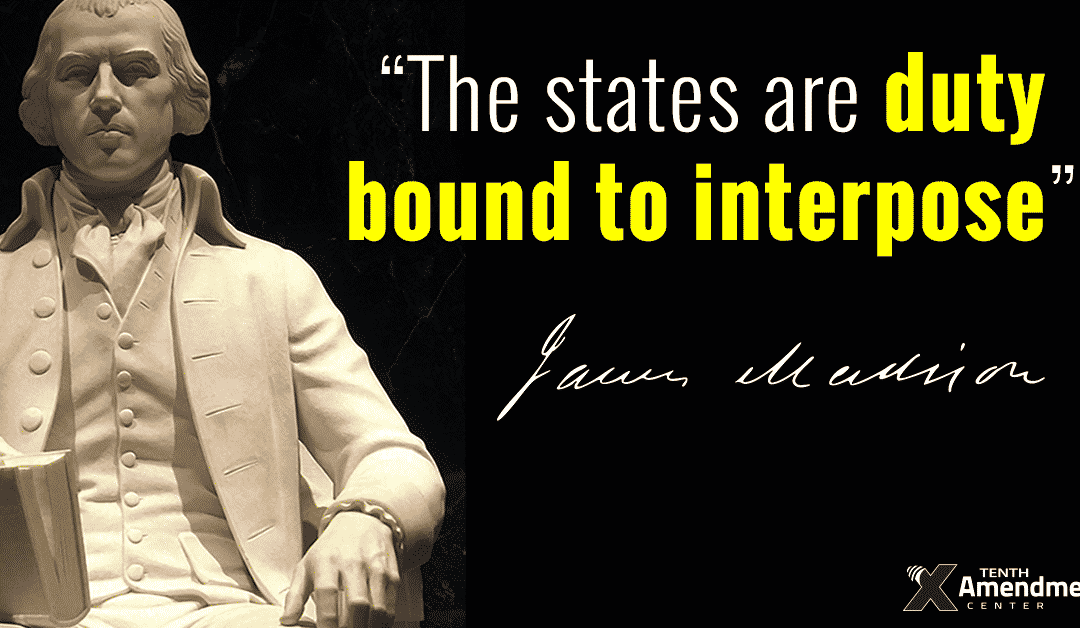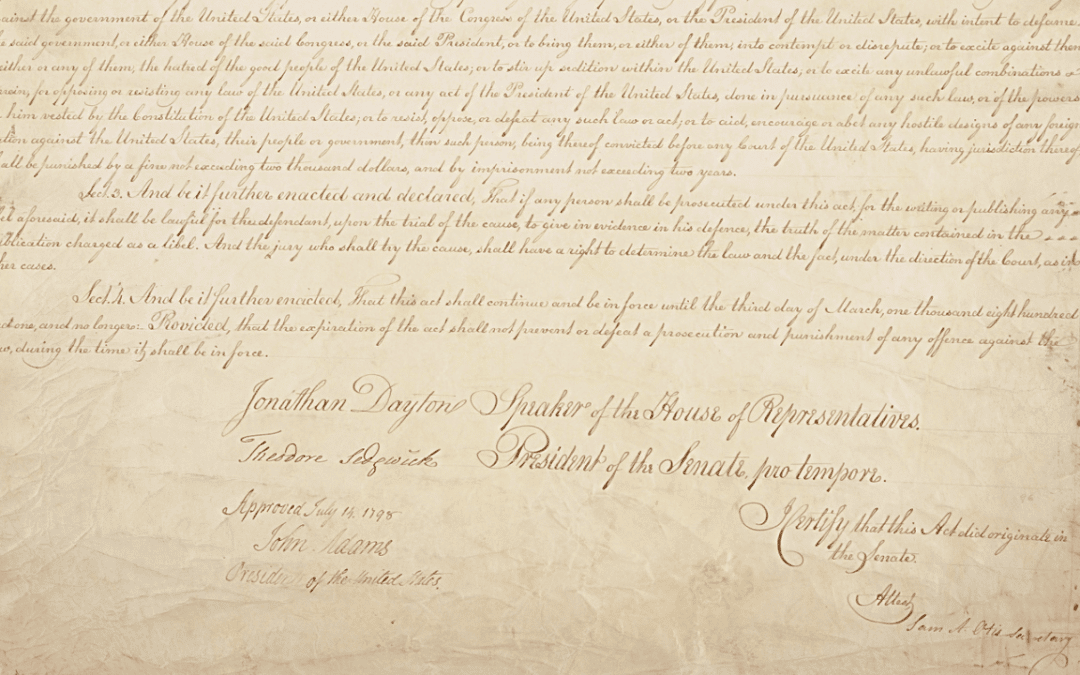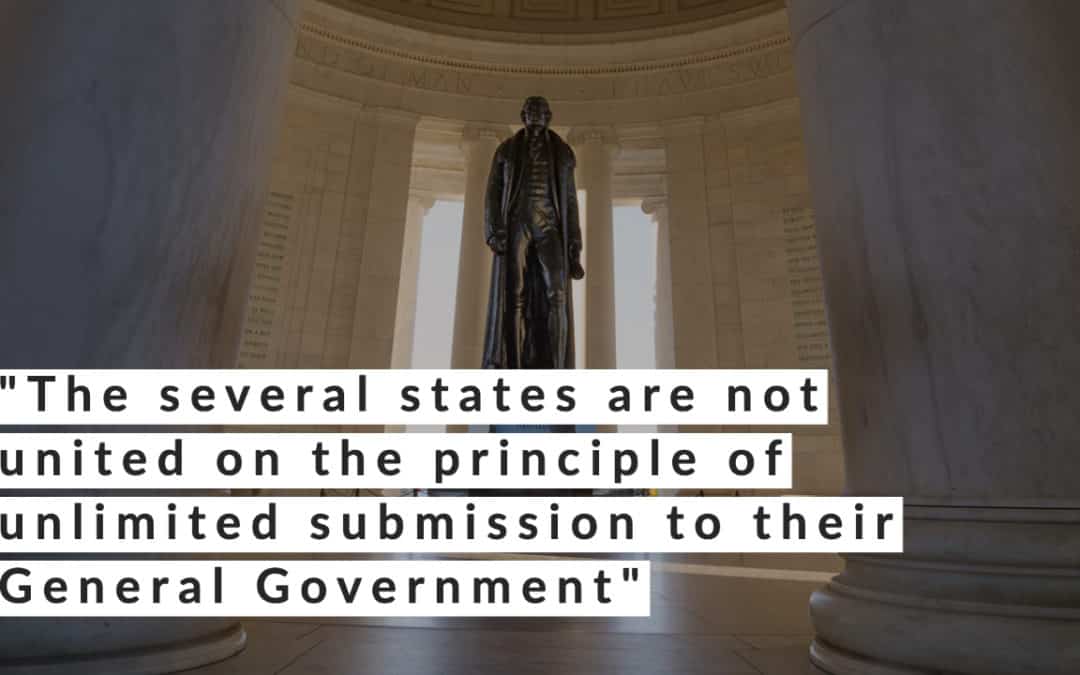
Kentucky and Virginia Resolutions


Kentucky Resolutions of 1798: Jefferson on the Constitution’s Structure and How to Defend It
“A nullification of the act is the rightful remedy.” That’s how Thomas Jefferson put it in his draft Resolutions against the Alien and Sedition Acts. On November 10, 1798, the Kentucky house passed resolutions based on his principles. They not only...
Principles of ’98: Rooted in the American Revolution
In response to the hated Alien and Sedition Acts, Thomas Jefferson and James Madison drafted the Kentucky and Virginia Resolutions of 1798, sometimes referred to as the “Principles of ‘98.” But the principles behind them were nothing new – they were part of a...
The Sedition Act of 1798: Silencing Dissent and Sparking Resistance
The Sedition Act of 1798 marked one of the most extreme restrictions on free speech in American history, criminalizing criticism of the government and making it illegal to publish anything that could “bring them or either of them into contempt or disrepute.” The law...
New Evidence: The Kentucky Resolutions of 1798 Were All About Nullification
Nullification skeptics will often argue that the Kentucky Resolutions of 1798 weren’t actually proposing nullification. They base their argument on the fact that John Breckinridge removed specific references to nullification from Jefferson’s draft before...
